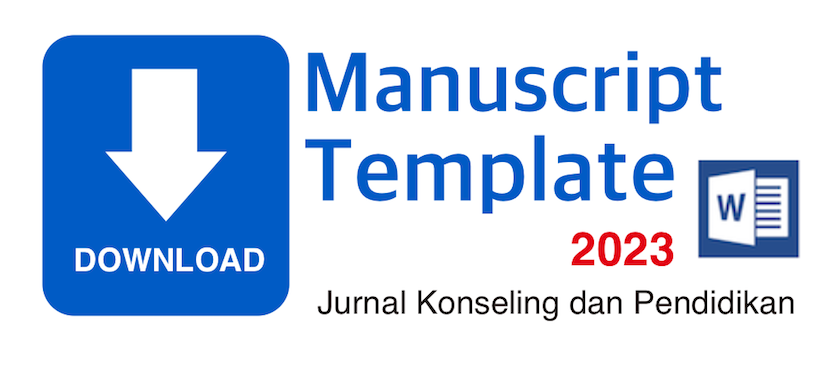Teacher communication intensity impacts student learning motivation in the era of the industrial revolution 4.0
 ),
), (1) UIN Fatmawati Sukarno Bengkulu
 Corresponding Author
Corresponding Author
DOI : https://doi.org/10.29210/183300
Full Text:
 Language : en
Language : en
Abstract
References
Anderson. (1996). Theory of Communication; A practical Introduction to Theory. St. Martin’s Press.
Bimas Saputra, E. (2022). the Effect of Teacher Communication Ability and Learning Motivation on Student Learning Outcomes in Economic Lessons for Class Xi Ips Sma Ekasakti in Padang Academic Year 2015/2016. Journal International on Global Education, 1(1), 1–10. https://doi.org/10.31933/jige.v1i1.532
Bovill, C., Cook-Sather, A., & Felten, P. (2011). Students as co-creators of teaching approaches, course design, and curricula: Implications for academic developers. International Journal for Academic Development, 16(2), 133–145. https://doi.org/10.1080/1360144X.2011.568690
Djali. (2008). Psikologi Pendidikan [Educational Psychology]. Pt Bumi Aksara.
Dwinda, A. (2021). Mengenal VUCA: Volatility, Uncertainty, Complexity, Ambiguity [Get to know VUCA: Volatility, Uncertainty, Complexity, Ambiguity].
Efriadi, T. (2020). wawancara.
Feryal, C. (2010). Student teachers’ perceptions of teacher competence and their attributions for success and failure in learning. The Journal of International Social Research, 3(10), 213–217.
Hapudin, M. S. (2021). Pengantar Ilmu Pendidikan memasuki Era Revolusi Industri 4.0 (1st ed.). [Introduction to Educational Science entering the Industrial Revolution Era 4.0]
Jono, ali akbar. (2022). Kinerja Tugas Dosen (task performance) Dosen ditinjau dari Perspektif Manajemen Organisasi [Lecturer task performance (task performance) Lecturer in terms of Organizational Management Perspective].
Mawardi. (2018). Hubungan Komunikasi Guru Terhadap Motivasi Belajar Siswa Kelas V SD Negeri Tangerang 6 Kota Tangerang [The Relationship between Teacher Communication and Learning Motivation for Class V Students at Tangerang 6 Public Elementary School, Tangerang City]. Didaktida Tauhidi: Jurnal Pedidikan Sekolah Dasar, 5(April), 1–14.
Mulyasa. (2006). Menjadi Guru Profesional Menciptakan Pembelajaran Kreatif dan Menyenangkan [Becoming a Professional Teacher Creates Creative and Fun Learning]. PT Remaja Rosdakarya.
Othman, A. K., Hamzah, M. I., & Hashim, N. (2014). Conceptualizing the Islamic Personality Model. Procedia - Social and Behavioral Sciences, 130, 114–119. https://doi.org/10.1016/j.sbspro.2014.04.014
Pedaste, M., Leijen, Ä., Poom‐valickis, K., & Eisenschmidt, E. (2019). Teacher professional standards to support teacher quality and learning in Estonia. European Journal of Education, 2019, 389–399. https://doi.org/10.1111/ejed.12346
Power, P. (2004). Business perspectives on educational leadership: what is the “bottom line”? Occasional Paper, Incorporated Association of Registered Teachers of Victoria (IARTV). 9–15.
Putri, A. (2016). Low Motivation in Learning Speaking. ANGLO-SAXON: Jurnal Ilmiah Program Studi Pendidikan Bahasa Inggris, 6(2), 14. https://doi.org/10.33373/anglo.v7i1.491
Rakhmat, J. (2011). Psikologi Komunikasi. remaja rosdakarya.
Ramli, N., Muljono, P., & Afendi, F. M. (2018). External Factors, Internal Factors and Self-Directed Learning Readiness. Journal of Education and E-Learning Research, 5(1), 37–42. https://doi.org/10.20448/journal.509.2018.51.37.42
Rembuksari, J., Hatta, S., & Timur, J. (2021). The Relationship between Teachers. Abstract, 6(2).
RI, U. (2003). Sistem Pendidikan Nasional [National Education System].
Sanjaya, W. (2014). Strategi Pembelajaran Berorientasi Standar Proses Pendidikan [Educational Process Standards Oriented Learning Strategies]. Prenada Media Group.
Sardiman. (2014). Interaksi dan Motivasi Belajar Mengajar [Teaching and Learning Interaction and Motivation]. Rajawali Pers.
Sudijono, A. (2014). Pengantar Statistik Pendidikan [Introduction to Education Statistics]. Rajawali Pers.
Sugiyono. (2014). Metode Penelitian Kuantitatif Kualitatif dan R & D [Qualitative Quantitative Research Methods and R & D]. Alfabeta.
Sukmadinata, N. S. (2008). Metode Penelitian Pendidikan [Educational Research Methods]. Remaja Rosdakarya.
Undang-undang RI Nomor 20 Tahun 2003, (2003).
Wahyuni, S., & Bhattacharya, S. (2021). Strategy of Islamic Religious Education Teachers in Increasing Student Learning Motivation. Tafkir: Interdisciplinary Journal of Islamic Education, 2(2), 229–249. https://doi.org/10.31538/tijie.v2i2.22
Yalcin Arslan, F. (2019). The role of lesson study in teacher learning and professional development of EFL teachers in Turkey: A case study. TESOL Journal, 10(2), 1–13. https://doi.org/10.1002/tesj.409
Ybnu Taufan, M., & Basalamah, A. (2021). Implementation of Teacher Social Competence in Improving Student Learning Motivation. Golden Ratio of Social Science and Education, 1(1), 25–36. https://doi.org/10.52970/grsse.v1i1.99
 Article Metrics
Article Metrics
 Abstract Views : 336 times
Abstract Views : 336 times
 PDF Downloaded : 62 times
PDF Downloaded : 62 times
Refbacks
- There are currently no refbacks.

This work is licensed under a Creative Commons Attribution 4.0 International License.



